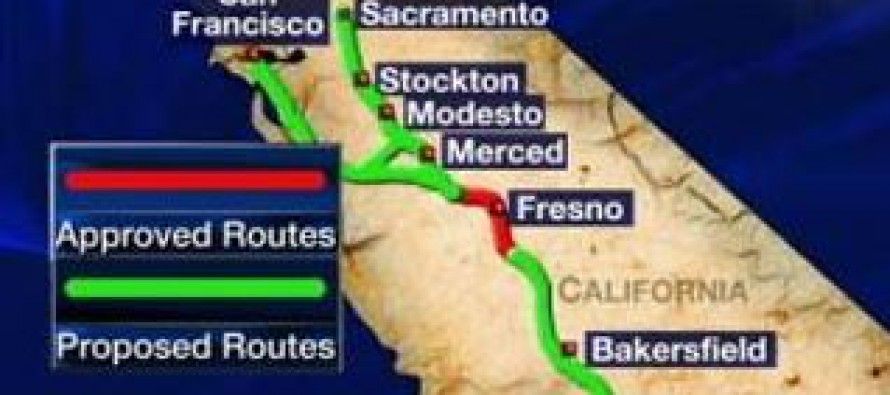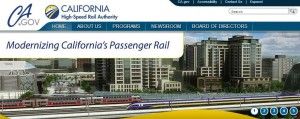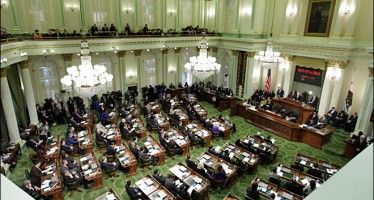Court hears objections to high-speed rail


This is Part 2 of a two-part series. Part 1 is here.
The first article in this series on the crucial May 23 hearing before the Third District Court of Appeal reported that questions asked by the justices seemed to lean in one direction: toward a reversal of a lower-court decision on March 4 by Superior Court Judge Michael Kenny that would delay the high-speed rail project from moving forward.
The lawsuit contended that the project’s funding plan did not comply with the requirements of Proposition 1A, the 2008 initiative that gave voter approval to the project. If the lawsuit eventually is upheld by the California Supreme Court, it would require the California High-Speed Rail Authority to rescind its Nov. 2011 funding plan.
California Attorney General Kamala Harris was represented by Deputy Attorney General Ross Moody. Arguing for the Kings County and two residents who have brought suit to stop the project was Stuart Flashman.
Two more groups also spoke up against the project.
Howard Jarvis Taxpayers
Attorney Tim Biddle of the Howard Jarvis Taxpayers Association insisted that the project violated the California Constitution, which mandates that the project must comply with Prop. 1A.
Specifically, he said that instead of a “high-speed” system, as voters were promised, Senate Bill 1029, the legislation funding the project, would use a “blended” system involving some high-speed trains combined with slow-speed trains.
He said the California High-Speed Rail Authority was doing this because they knew they didn’t have the money to build the project as outlined in the bond act. Biddle claimed that, if his organization didn’t make the argument today that the project has changed, it would never have the opportunity to send this back to the voters to approve the changes.
Presiding Justice Vance W. Raye, who generally seemed resolute in arguments against the project, took notes about Biddle’s comment, and acknowledged Biddle’s point about the $1.1 billion in the appropriations bill for the blended system.
Biddle argued the sale of the bonds was very important and was covered under the constitution as well.
Raye asked if that couldn’t be addressed later. He was under the impression that, if in fact the bonds were sold for the high-speed rail project — if the project didn’t go forward somehow — the California Treasurer could give back the money to the buyers. Raye admitted he could not remember if that had been done, but that such a giveback could be an option.
Union Pacific Railroad
Union Pacific Railroad Attorney Blaine Green was the last to speak and had less than two minutes to make his points.
Green opened by saying UPRR was the only actual railroad involved in this case. Green’s points were only about the bond validation part of the case, and not the part of the case involved with Kings County and two residents against the project. On Aug. 22, 2013, UPRR filed a response when Attorney General Harris asked the court to validate the bonds.
Union Pacific is concerned about the scope of a bond validation action, that it was too broad. It feared that, if the wording of the bond validation was left as written, it would confirm that the CHSRA was compliant with all factors within Prop. 1A.
In court on May 23, Green said of the bond, “It’s far overbroad.”
He argued there were other issues concerning the bond measure that were still in question, such trip time being too slow; and that blended system operations on UPRR tracks would interfere with the operation of their freight railroad.
Flashman’s conclusion
After the arguments were given, Flashman observed outside the court:
“The justices have been confronted with a stark dichotomy. On the one hand they have Gov. Brown demanding, by way of the Attorney General, that the court let him move ahead with building his ‘legacy’ high-speed rail project.
“On the other hand, they are faced with having to emasculate the clear language of a bond measure that had been placed before and approved by the state’s voters. If they do Brown’s bidding, I fear they will do long-term damage, not only to the court’s reputation as a fair arbiter of justice, but perhaps even more importantly to voters’ trust in the meaning of language placed before them on the ballot. The potential damage to Californians’ confidence in state government could perhaps be compared to that done to the integrity of national elections by the U.S. Supreme Court’s 2000 Bush vs. Gore decision.”
Conclusion
It appears the number one thing the CHSRA wants to do is start construction in the hope that they can spend the $3.5 billion in federal funds in the Central Valley and not be required to return the money. Moody said in the beginning of his arguments that it was important to overturn Kenny’s rulings because there is a pot of money that has to be spent by September 2017.
Unfortunately, there weren’t any inquiries from the justices questioning the importance of defending the protections of a voter-approved bond measure. The questions were about the Legislature’s role and the timing of the court cases.
According to court observers, judges usually have the opinion written before they go to the hearing. The questions they asked seemed to be clarifying and testing that opinion to make sure they are as accurate as possible in their ruling. So while the court officially has 90 days to decide, they very well might decide in a 30-45 day time frame because the state asked for the decision on an expedited basis.
The hearing can be heard in it’s entirety at:
https://www.youtube.com/watch?v=twdcDrKBBVY&feature=youtu.be
Kathy Hamilton is the Ralph Nader of high-speed rail, continually uncovering hidden aspects of the project and revealing them to the public. She started writing in order to tell local communities how the project affects them and her reach grew statewide. She has written more than 225 articles on high-speed rail and attended hundreds of state and local meetings. She is a board member of the Community Coalition on High-Speed Rail; has testified at government hearings; has provided public testimony and court declarations on public records act requests; has given public testimony; and has provided transcripts for the validation of court cases.
Related Articles
East Bay second Cal State foundation to file questionable tax returns
May 21, 2012 By John Hrabe With 427,000 students and 44,000 staff on 23 campuses, the California State University System
Women poised for modest gains in legislative races
Women make up more than half of California’s population, but only about one-fourth of the Legislature. And in November, that’s
Duvall nearly out of money
JUNE 4, 2010 By ANTHONY PIGNATARO Former Assemblyman Michael D. Duvall of Yorba Linda, who left office suddenly in September



